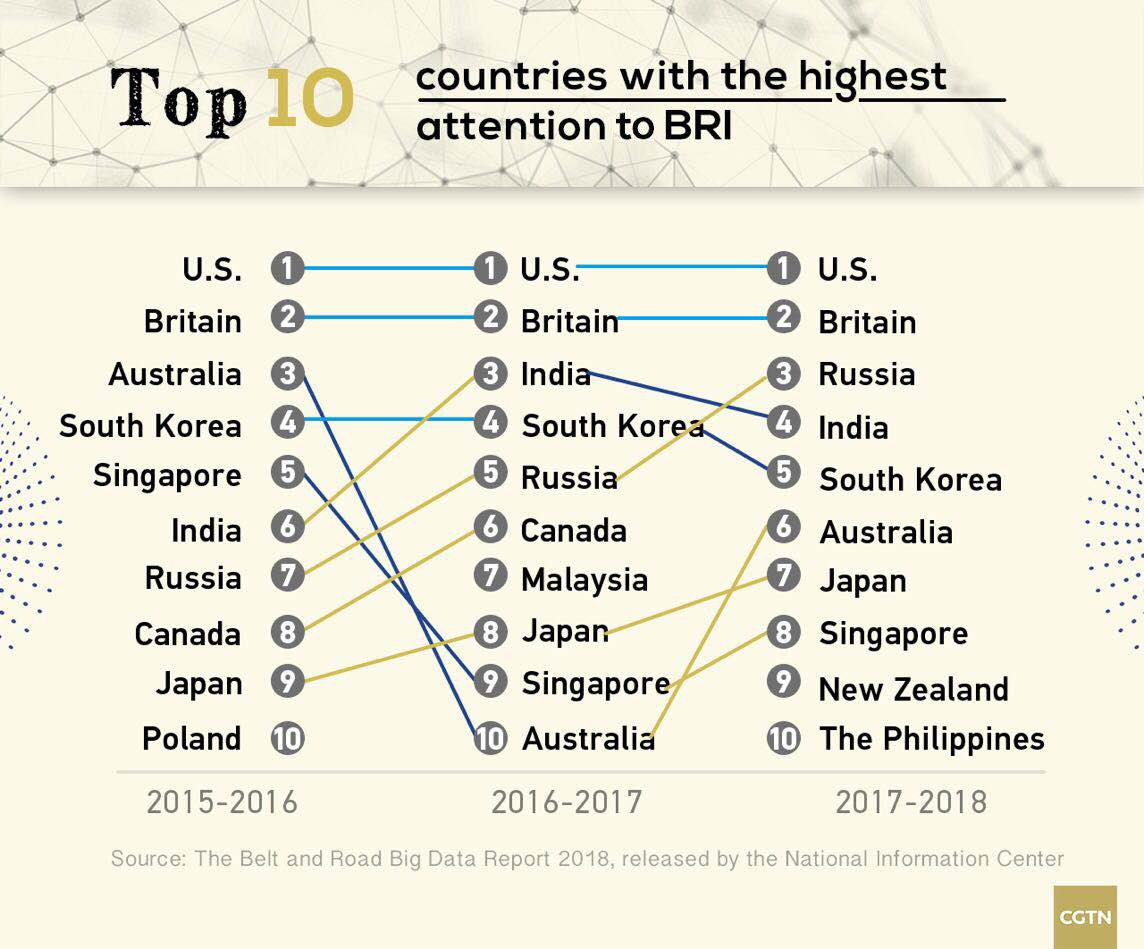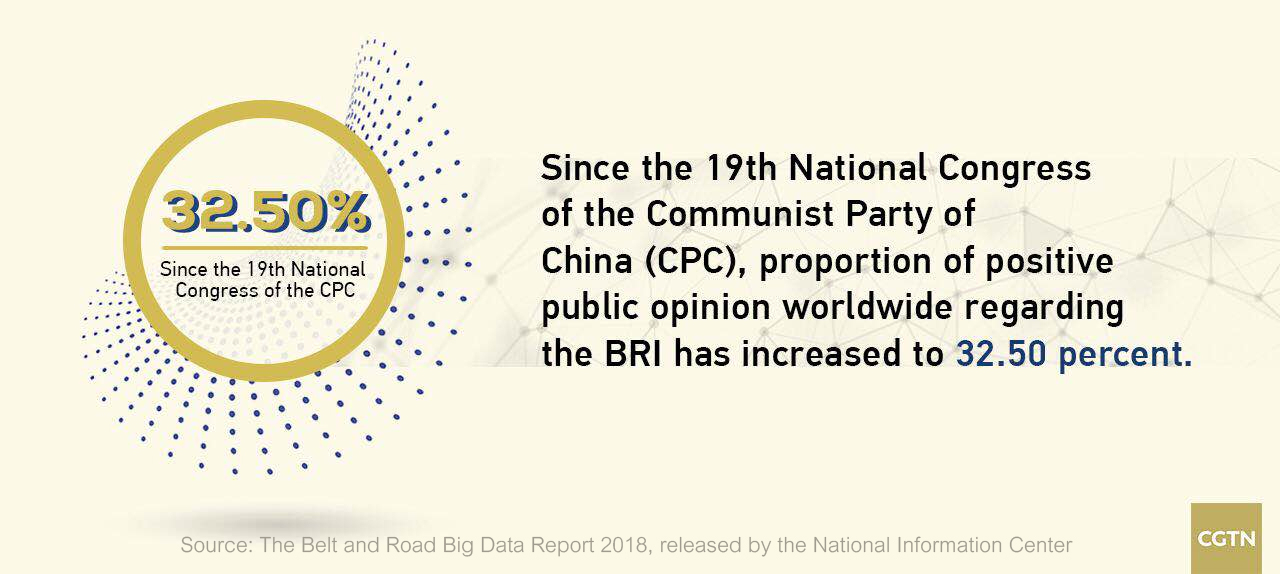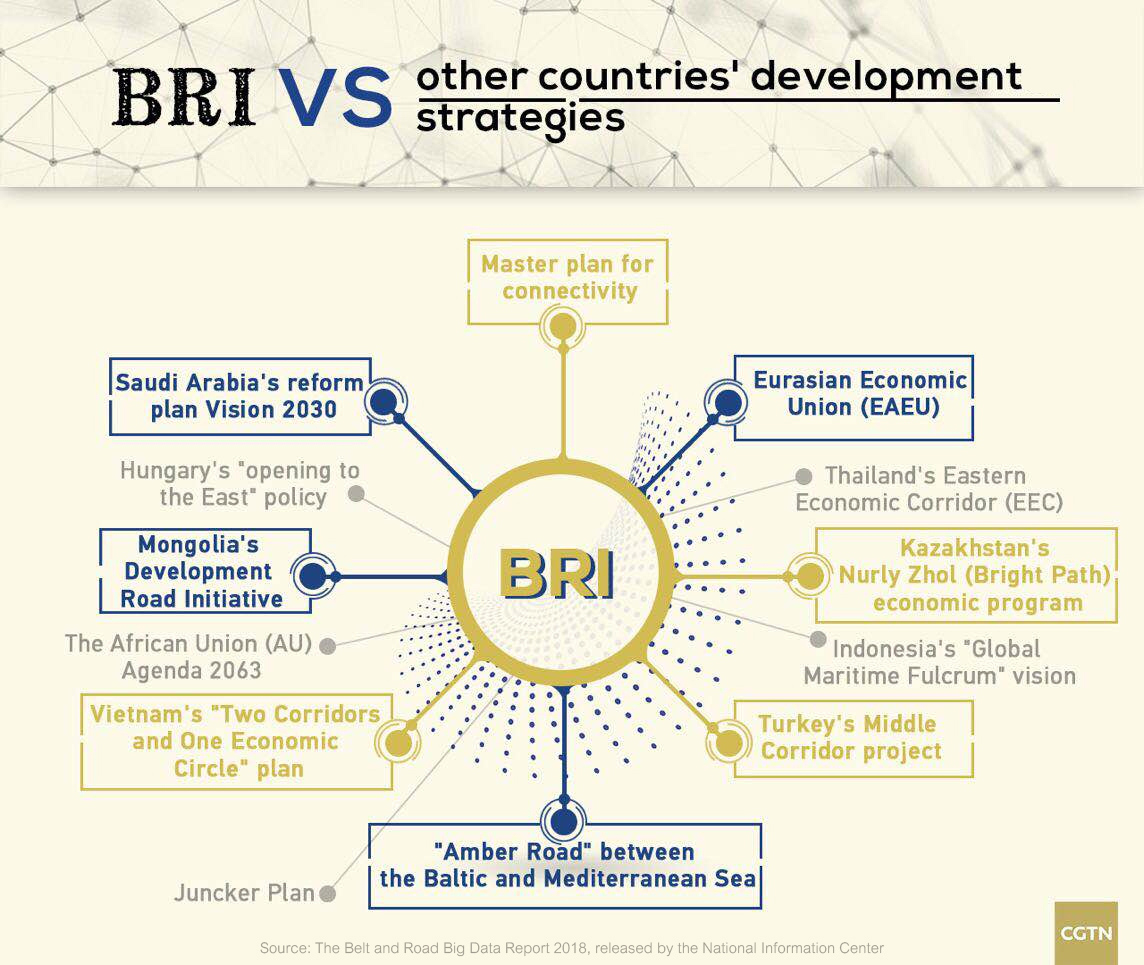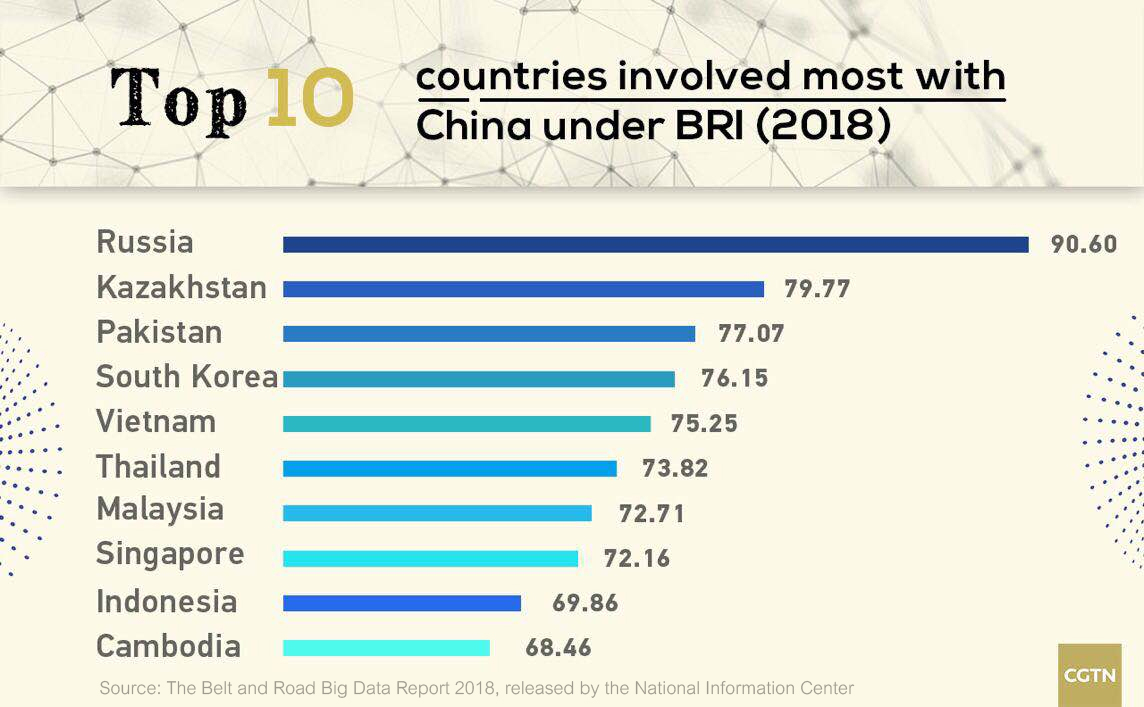
World
17:30, 20-Apr-2019
Belt and Road: China proposed initiative for global prosperity
Updated
18:10, 20-Apr-2019
By Duan Fengyuan, Yin Yating

The Second Belt and Road Forum for International Cooperation (BRF) will be held in Beijing from April 25 to 27 this year.
As the highest-level platform for Belt and Road cooperation where all parties concerned meet to build consensus and adopt plans for future cooperation, the forum has drawn global attention.
In 2013, China proposed the Belt and Road Initiative (BRI) with the aim to build a trade and infrastructure network connecting Asia with Europe and Africa along the ancient trade routes of the Silk Road, to seek common development and prosperity.
After years of unremitting efforts, the initiative has grown from a concept to a key platform for building a community with a shared future for mankind.

The global influence of the BRI has been growing since 2013. China has signed 174 cooperation documents under the initiative with 126 countries and 29 international organizations.

Many countries and regions have actively dovetailed the BRI with their own development programs such as the EU's Junker Investment Plan, the Russia-led Eurasian Economic Union, Mongolia's Prairie Road and Kazakhstan's Nurly Zhol (Bright Path).
The level of cooperation between China and the countries along the Belt and Road routes has been increasing year by year. The index for 2018 was 47.12, which was 2.01 points and 3.57 points higher than that in 2017 and 2016 respectively, according to a report released last September by the National Information Center during the 2018 Summer Davos Forum.


The Belt and Road Big Data Report 2018 reflects the progress and effectiveness of the Belt and Road construction.
It was the third consecutive year that the institute had issued a comprehensive annual report on BRI cooperation, which uses big data technology to analyze six aspects of cooperation between China and 71 countries and regions, and uses six indicators to evaluate the cooperation level. The research is based on more than 500 billion pieces of information collected by more than ten data sources.

According to Chinese State Councilor and Foreign Minister Wang Yi, this year's forum will be attended by some 5,000 participants from more than 150 countries and 90 international organizations, including heads of state and government from 37 countries.

SITEMAP
Copyright © 2018 CGTN. Beijing ICP prepared NO.16065310-3
Copyright © 2018 CGTN. Beijing ICP prepared NO.16065310-3